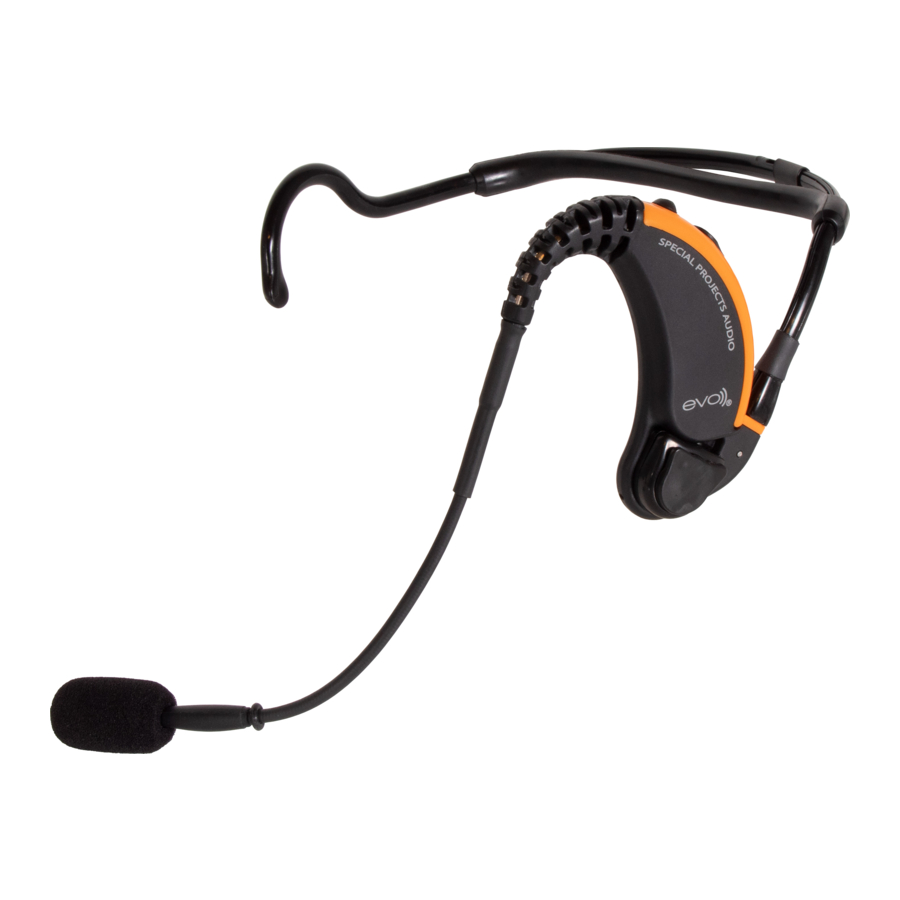- ページ 3
マイクシステム Galaxy Audio Special Projects EVO Scan16のPDF ユーザーマニュアルをオンラインで閲覧またはダウンロードできます。Galaxy Audio Special Projects EVO Scan16 16 ページ。

1. Introduction
Thank you for purchasing the Scan16 Professional Wireless Microphone System featuring the EVO
True Wireless Fitness Transmitter (for brevity, noted in this manual as 'EVO'). This Patent Pending PLL
synthesized wireless microphone system operates in an FCC approved UHF band frequency with 16
selectable channels. Please read this instruction manual carefully before operating the system. This
manual covers the function and operation of the wireless microphone system.
2. Safety
●
While the EVO transmitter is water resistant, the SP-25R receiver is not. Please observe these safety
precautions.
●
Do not spill liquid on the receiver and do not drop either unit.
●
Do not place the units near heat sources such as radiators, amplifiers, or etc.
●
Do not expose it to direct sunlight, extremely dusty conditions, excessive moisture, or vibration.
3. Environment
●
Do not throw used electronics into a fire or garbage bin with domestic rubbish. Be sure to dispose
of used batteries in accordance with local waste disposal rules.
●
When disposing the equipment, remove the batteries, separate the case, circuit boards, and
cables, and dispose of all components in accordance with local waste disposal rules. But really, we
know you will not throw this away, we just are required to include a statement on the environment.
4. Wireless Notes
●
Before setting up, make sure that the transmitter and receiver are tuned to the same frequency.
●
Do not use two transmitters tuned to the same frequency.
●
Always operate your system with a fully charged battery.
●
Set the MIC/LINE switch on the rear of receiver to adjust receiver output level to match input level
requirements of an audio mixer or amplifier.
●
While checking sound, move the transmitter around the area where you use the system to look for
dead spots (receiver loses the signal). If you find any dead spots, change the receiver position. If it
does not work, avoid such places.
●
To avoid interference from signal reflections, do not put the receiver too near significant metal
objects and avoid obstructions between transmitter and receiver. Try to maintain a 'line of sight'
with the receiver.
●
Avoid the interference from TV, radio, other wireless appliances and etc..
●
Wireless systems depend on fully charged batteries. Low batteries will seriously degrade
performance. Be certain to allow charge time prior to use.
●
Be certain that the receiver antennas are exposed and in 'line of sight' with the transmitter.
2
